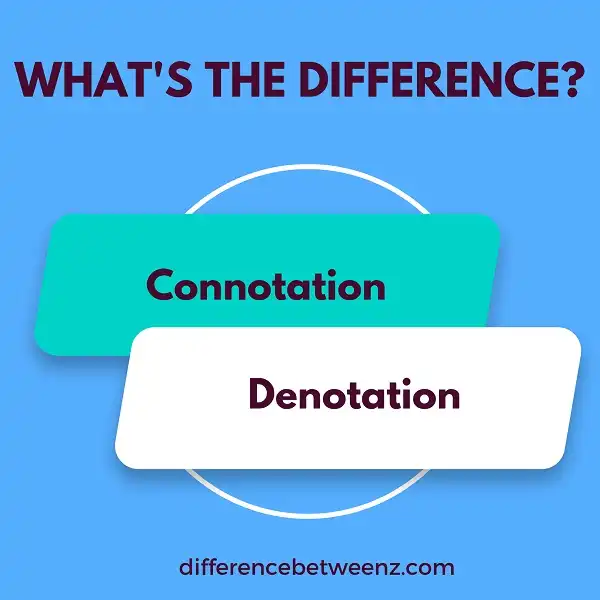When it comes to understanding the English language, there are a few key concepts that everyone should know. Two of these concepts are connotation and denotation. Though they sound similar, their meanings are actually quite different. In this blog post, we will explore the definition and differences between connotation and denotation. After reading this post, you will be able to use these terms correctly in your own writing!
What is Connotation?
Connotation is the meaning of a word that is not stated explicitly. Connotation can be positive, negative, or neutral. It is often used to suggest emotions or feelings associated with a word. For example, the word “home” has positive connotations of comfort and safety, while the word “war” has mostly negative connotations of violence and destruction. Connotation can also be used to create a certain tone or atmosphere in writing. For example, describing someone as “languid” might create a peaceful or dreamlike atmosphere, while describing them as “frenzied” might make the situation seem more chaotic. Connotation is a powerful tool that authors can use to create specific effects in their writing.
What is Denotation?
Denotation is the literal or primary meaning of a word, as opposed to its connotation, which is the associated or figurative meaning. Denotation is often defined in contrast to connotation, which is more subjective. Denotation refers to the fixed, dictionary definition of a word, while connotation refers to the feelings and associations that a word evokes. The connotation of a word can be positive, negative, or neutral.
For example, the denotation of the word “snake” is a reptile with a long body and no legs. The connotation of the word “snake” might be treacherous or evil. In general, denotation is more objective, while connotation is more subjective. Denotation is also more stable over time, while connotation can change based on cultural associations.
Difference between Connotation and Denotation
Connotation and denotation are two terms that are often used in relation to language. Connotation refers to the emotional associations that a word or phrase has, while denotation is the literal meaning of the word or phrase. For example, the word “home” has positive connotations of comfort and security, while its denotation is simply “a place where someone lives.” In contrast, the word “house” has more neutral connotations, and its denotation is “a building where people live.” When choosing words, it’s important to be aware of both the connotations and denotations in order to communicate effectively.
Conclusion
We hope this article has helped to clear up any confusion between connotation and denotation. It is important to be aware of the difference when reading or creating text so that your meaning is communicated accurately.


